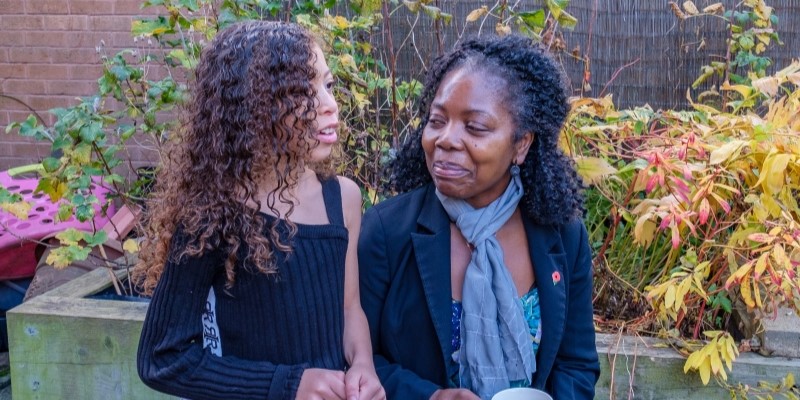What kinship foster care is, where to get more support and information and how the assessment process works.

Kinship foster care is when a child lives with a family member or close family friend but is still in the care of Bristol City Council.
This may be under a:
- care order, where we have parental responsibility for the child
- voluntary agreement with the child's parents or carer under section 20 of the Children Act 1989
Support for kinship foster carers
Children in a kinship care arrangement remain in local authority care. Therefore, kinship carers get the same support as other foster carers.
The payment and reward structure is also the same as other foster carers.
Carers for children in a kinship care arrangement also have an allocated supervising social worker who they can contact for advice and support.
Assessment and training
If you want to be a kinship foster carer, a kinship social worker will:
- assess you
- consider whether it's safe for you to care for the child and if so under which legal order
Depending on circumstance, the social worker may consider a special guardianship order, child arrangements order or for the child to remain in care under a kinship fostering arrangement.
If the social worker recommends a kinship fostering arrangement, the assessment will check if you meet fostering regulations and can provide a safe and stable home.
Once your checks are confirmed as clear and we have your references, you'll need to attend a kinship fostering training course run by foster carers and social workers.
The course:
- will help prepare you for caring for a foster child
- is a great opportunity to meet other people applying to be kinship foster carers
The course is similar to Skills to Foster for mainstream foster carers but is specifically tailored for kinship foster carers.
As with a mainstream fostering arrangement, a social worker will visit you and your family at home, usually several times, depending on your family's circumstances.
The visits help us to get to know you and your family, and better understand the skills and experience you have. We'll also answer any questions you might have about kinship fostering and make sure you have all the information you need.
The approval process
Once we've completed our visits, we'll write a report and make a recommendation to our fostering panel. The fostering panel is an independent group who make sure we've followed the right process. They'll tell us if they think you're suitable to become a kinship carer.
You and your social worker will meet with the fostering panel so they can get to know you and ask you a few questions.
Our fostering panel will then talk about your application. They'll make a recommendation to the fostering team senior manager about whether or not fostering is right for you.
If the fostering panel have made a positive recommendation, your application will most likely be approved.
If it isn't approved, you have the right to ask for an independent review.
If a child is placed with you in an emergency
Sometimes there is no time to carry out a full fostering assessment before placing the child with you. Children's services can give you temporary approval as a foster carer for up to 16 weeks to allow time for a full fostering assessment. This is called a Regulation 24 foster care arrangement.
Occasionally, temporary approval can be extended by 8 weeks, but no longer. Children's services may decide it's better to place the child with an approved foster carer, short term, while they assess your suitability.
Decision
A final decision will then be made by the child's social worker about where the child should live. In some instances, a final decision may be made by the court.
The carers may care for the child under:
- a temporary foster care arrangement (Regulation 24) and then a special guardianship arrangement
- fostering regulations after being approved by the fostering panel and agency decision maker
If the child stays in kinship foster care, they will:
- stay in Bristol City Council's care under kinship fostering arrangements
- have a social worker
- have an independent reviewing officer
Your responsibilities as a kinship foster carer
Kinship foster carers do not have parental responsibility. Bristol City Council is responsible for the care of a child in care, even though you are providing this care as a foster carer.
You are caring for the child on behalf of Bristol City Council, which means you must work closely with social workers to follow agreed arrangements. Speak to your social worker about how this might work in your situation and what rights you, the parents and children's services have.
All foster carers must sign a foster care agreement. This clarifies your role and responsibilities, as well as the support we'll provide.
Longer term arrangements
If there are no plans for the child to return to the care of their parents, you may wish to consider applying for a legal order, such as a special guardianship order . This is something that can only happen once the child has been in your care for a period of time, usually about 3 months. The legal order gives you parental responsibility which is shared with the parents, and a permanent secure home for the child. The child would no longer be under Bristol City Council's care and this is likely to mean less financial and practical support from us than if you were a kinship foster carer.
To find out more about kinship foster care and kinship care in general, go to:
